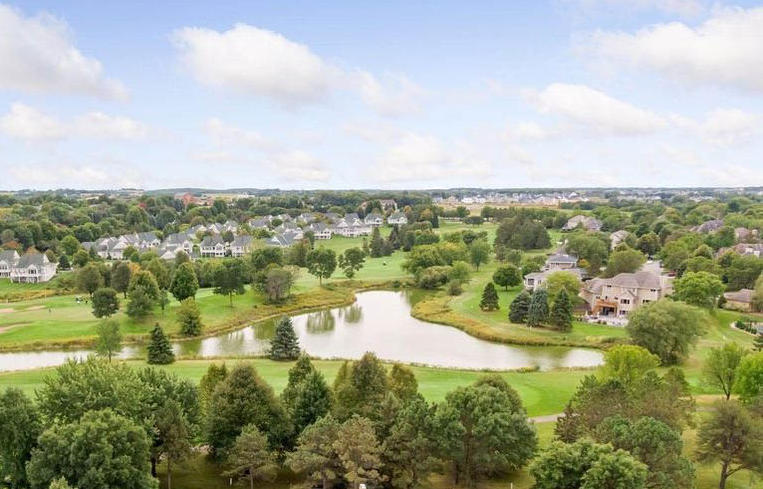Last fall, the City of Woodbury approached the Resilient Communities Project for assistance updating its Urban Tree Canopy Plan. The City's primary concern was how to equitably increase Woodbury's tree canopy coverage, update the approved tree species list, and help residents understand the importance of trees for environmental stewardship.
To address these considerations, Kristin Seaman, Woodbury's environmental resources specialist, collaborated with faculty and students in the Department of Forest Resources and the Hubert H. Humphrey School of Public Affairs during the spring 2021 semester.
Students in Dr. Eric North’s course, "Urban Forest Management: Managing Greenspaces for People," divided into three teams to assess Woodbury's current tree canopy, investigate how it could be equitably expanded in the future, and provide analysis and recommendations for the City to incorporate into their updated tree canopy plan. Notable recommendations included incorporating traditional ecological knowledge into future planning efforts, acknowledging culturally significant trees in the community, and building relationships with interested tribal nations around environmental stewardship.
Public policy students were also engaged in the project through LisaBeth Barajas’ "Public Participation Capstone." A team of four graduate students spent the semester developing community engagement best practices and an engagement toolbox that includes numerous practical strategies for engaging the full range of community voices, virtually and in-person, both during the COVID-19 pandemic and beyond. The engagement toolbox includes an inclusive engagement checklist, tree stewardship tool, communications plan template, focus group and survey tools, intercept engagement strategies, and other resources.
Master of public affairs student Naomi Rodiles, who participated on the capstone team and who is a longtime Woodbury resident, remarked,
My biggest takeaway is just how critically important it is to be intentionally inclusive in public engagement efforts. There are so many ways to get input and to connect with the community. However, not all input received accounts for all community perspectives. An intentionally inclusive effort requires understanding the segments of the population you haven't heard from and creating engagement strategies to connect with those groups in a concerted way.
This project was supported through a Comprehensive Plan Implementation Partnership as part of RCP's ongoing collaboration with the Metropolitan Council to build community resilience, advance equity, and support implementation of key elements of adopted 2040 comprehensive plans in the Twin Cities metropolitan region.
Updating the community's Urban Tree Canopy Plan was an implementation item in the Parks and Natural Resources chapters of Woodbury's 2040 comprehensive plan. To prepare for the update, City staff reviewed tree canopy and urban forest plans from other cities, and found that--much like Woodbury's--many of the plans had not aged well and felt outdated.
“Across the country, we found many plans that incorporated a thorough analysis of equity, climate change and engagement, but mainly from larger cities like Los Angeles, Pittsburgh, or Portland," Seaman noted. "Through our partnership with RCP, we took the initiative and reviewed how our current canopy potentially impacts residents differently. and we will incorporate those findings into future planning efforts. This information will be critical to how we program future budgets and City efforts, along with how we can engage private property owners in enhancing our community's urban forest.”
The students' final reports and the engagement toolbox are available for download below. This summer, staff from RCP, Woodbury, and the Metropolitan Council will adapt the student work to produce a set of materials that communities around the Twin CIties metro area can use for their own urban forestry planning or other environmental planning efforts.
By partnering with U of MN students and faculty through the Resilient Communities Project, Woodbury staff were able to investigate important and timely issues that were not originally on the agenda for their plan update. As Seaman observed, “The students brought a new perspective for approaching how Woodbury considers the urban forest and how we can consider other sectors of City service.”
All of the students’ final reports and presentations are available below:
- FNRM 4501/5501 Urban Forest Management: Managing Greenspaces for People
- PA 8081 Public Participation Capstone
The project and outcomes were recently featured on the Metropolitan Council's PlanIt Podcast series: PlanIt Podcase Episode 36: Enhancing Woodbury's Urban Tree Canopy.
